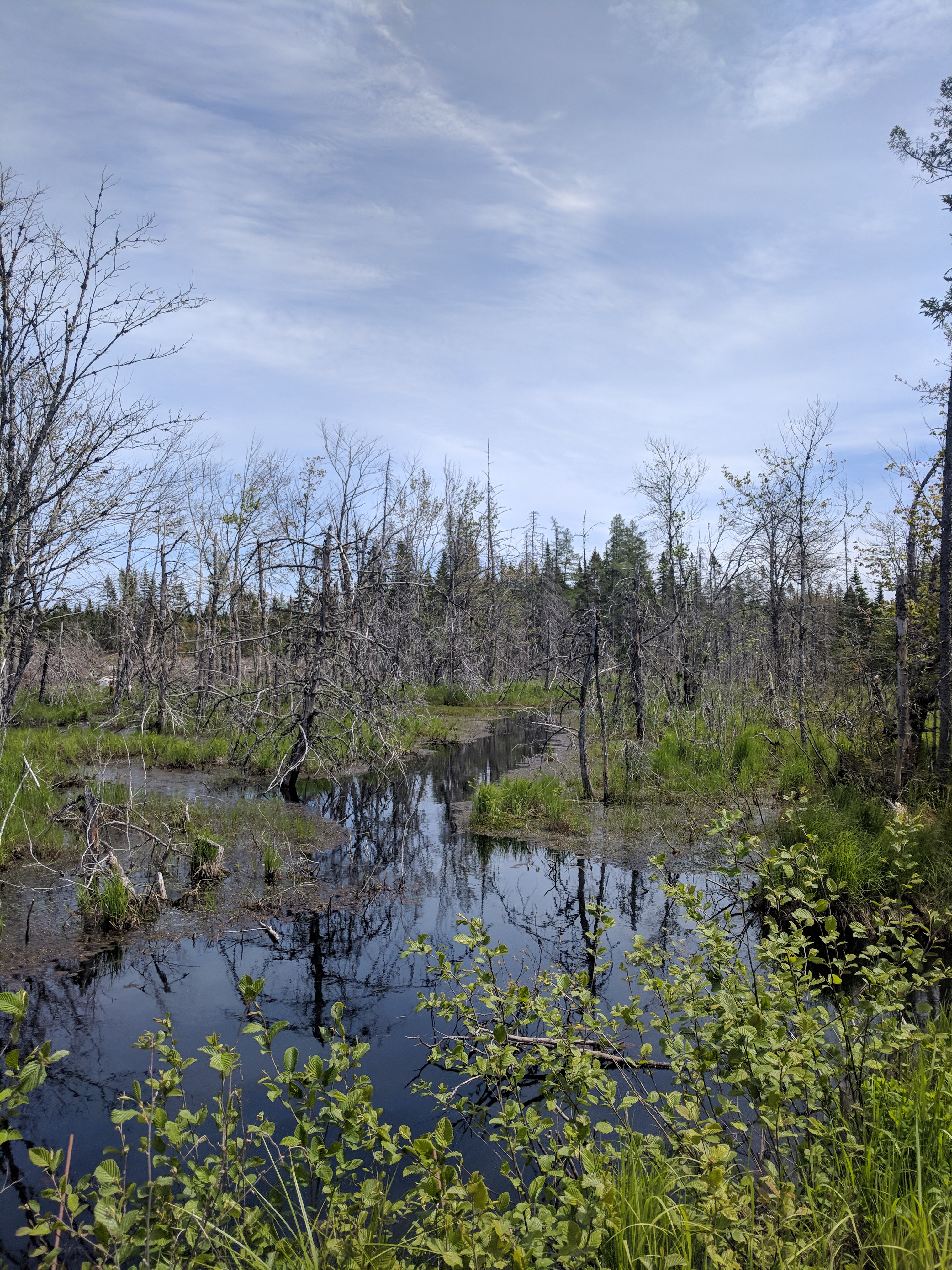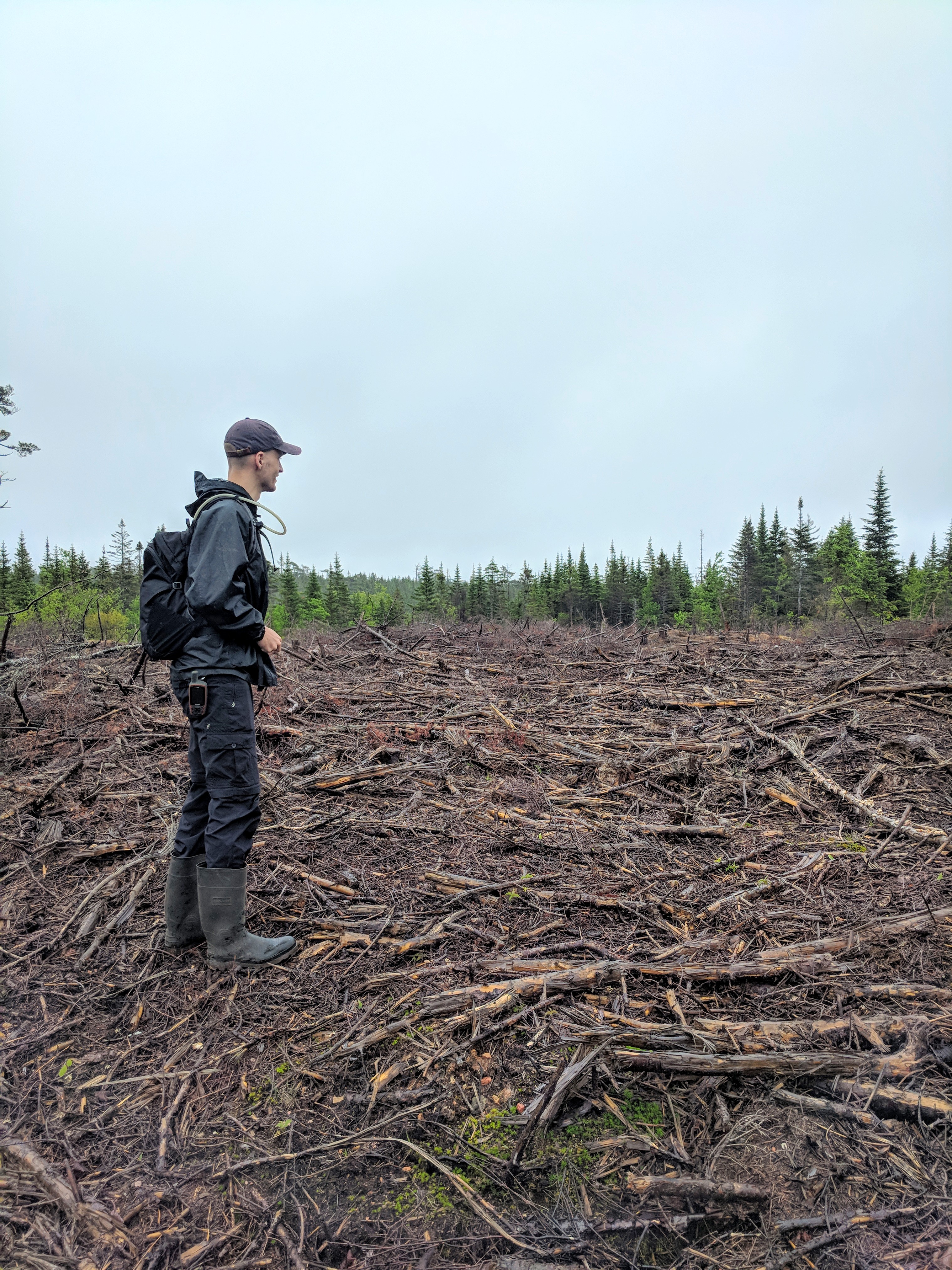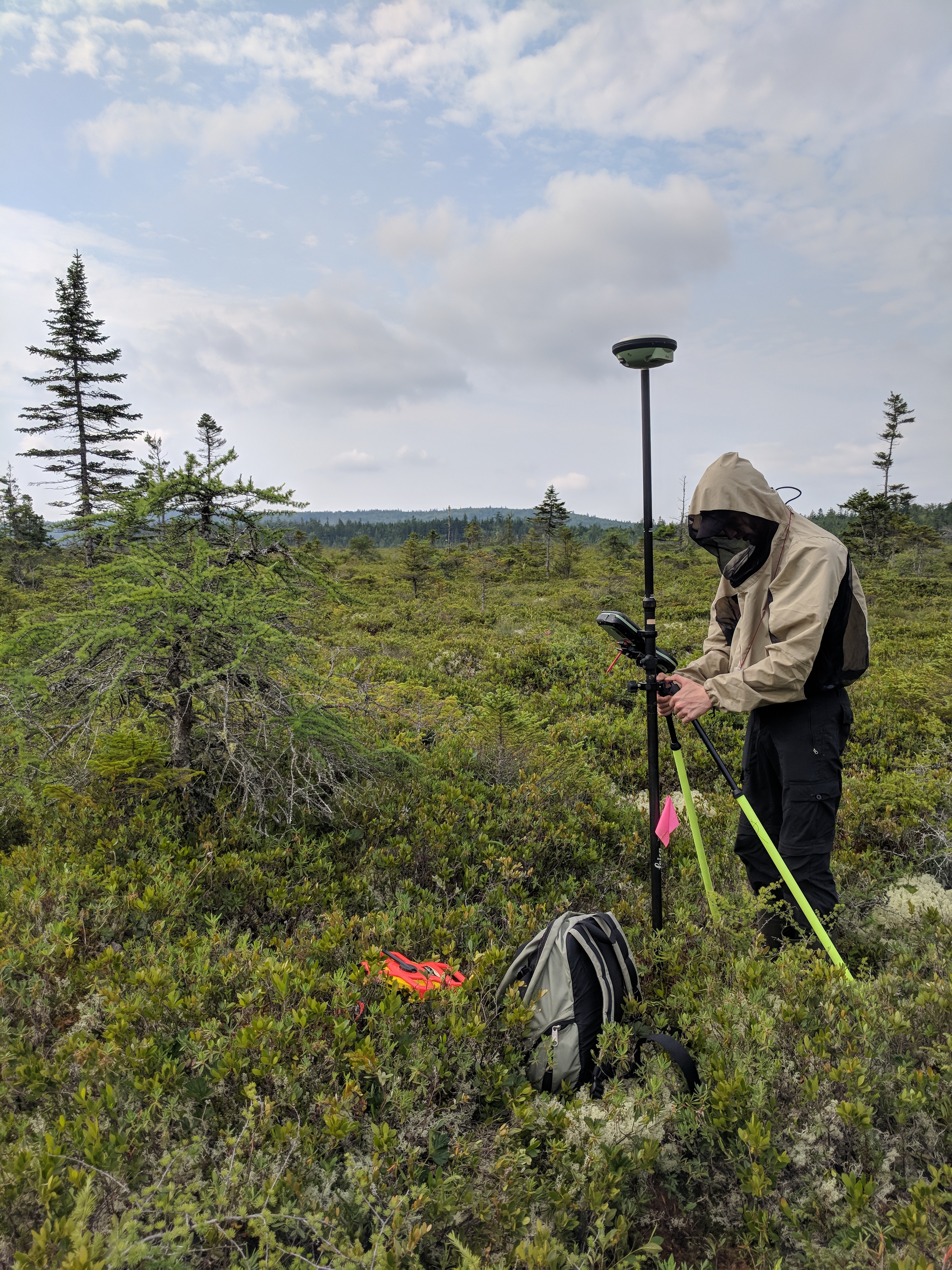Forested wetlands are a unique, but understudied, ecosystem in Atlantic Canada.

Photo taken by Iain Wilson, honours student at Saint Mary’s University
Because of their complex vegetation structure and wide range of hydrological and edaphic (soil) conditions, forested wetlands are quite biodiverse and have a relatively unique set of ecosystem functions. Through a better understanding of their ecology, we aim to help in the improvement of conservation policies to mitigate threats and to protect the ecosystem services and biodiversity provided by forested wetlands in Atlantic Canada.


Funded by the Atlantic Ecosystem Initiative, this project has been undertaken by a diverse team of researchers, students, and institutions in Atlantic Canada to better understand the ecology of forested wetlands.
It has built on previous studies initiated by our team members, extending research on:
- structural diversity and vegetation communities
- at-risk lichen species distribution and macrolichen communities
- habitat identification for at-risk land birds
- mycorrhizal colonization
- soil carbon sequestration




Research project components include:
- Extensive surveys to characterize forested wetlands (e.g. birds, lichen, habitat, structure)
- Intensive sampling to determine the diversity of flora in vegetation communities
- Specific research projects to test hypotheses about ecosystem processes
- Landscape analyses to assess spatial and temporal dynamics
- Synthesis activities to share information and to synthesize results, make recommendations and disseminate information to the public
The Principal Investigators of this project are Dr. Karen Harper and Dr. Cindy Staicer.